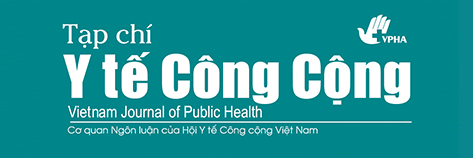Smoke-free implementation: A case study on policy development and dissemination within four Vietnamese Universities
Abstract
Tobacco Control Law was enacted in Vietnam in 2013, requiring an indoor smoking ban in public settings including educational institutions. This study aimed to investigate smoke–free policy development, dissemination and implementation within universities.
Methods: Qualitative case study at four Vietnamese universities. Qualitative methodology was used to review policies, their dissemination and implementation.
Results: The development and implementation of smoke free policies varied significantly across the four universities: Policy development and implementation was at different stages in each of the universities. In one university, smoke-free policy had been developed prior to the legislation and failed to fully reflect requirements of the legislation while in another the policy development was not initiated until after the legislation was enacted. The identified weaknesses of the implementation processes were inadequate monitoring and lack of penalties for violations.
Conclusion: The smoke-free article in the Law had been disseminated and implemented at the studied universities. However, more efforts and resources were needed to increase policy effectiveness.Keywords
Full Text:
PDFReferences
Mather CD, Lonca D (2006). Projections of Global Mortality and Burden of Disease from 2002 to 2030. PLOS Medicine, 3, 2011-30.
WHO 2009. WHO Framwork convention on Tobacco Control: Guidelines for implementation article 5.3; Article 8; Article 11; Article 13.
Hahn EJ, Rayens MK, Butler KM, et al (2008). Smoke-free laws and adult smoking prevalence. Preventive medicine, 47, 206-9
Ong MK, Glantz SA (2004). Cardiovascular health and economic effects of smoke-free workplaces. The American journal of medicine, 117, 32-8
Rayens MK, Burkhart PV, Zhang M, et al (2008). Reduction in asthma-related emergency department visits after implementation of a smoke-free law. The Journal of allergy and clinical immunology, 122, 537-41 e3.
Hahn EJ, Rayens MK, York N, et al (2006). Effects of a smoke-free law on hair nicotine and respiratory symptoms of restaurant and bar workers. Journal of occupational and environmental medicine, 48, 906-13.
Ritchie D, Amos A, Martin C (2010). Public places after smoke-free--a qualitative exploration of the changes in smoking behaviour. Health & Place, 16, 461-9.
Corsun DL, A.Young C, A.Enz C (1996). Should NYC's restaurateurs lighten up? Effects of the city's smoke-free-air act. Restaurant Management, 37, 25 - 33.
Lal A, Siahpush M, Scollo M (2004). The economic impact of smoke-free legislation on sales turnover in restaurants and pubs in Tasmania. Tobacco Control, 13, 454-5
Mons U, Nagelhout GE, Allwright S, et al (2012). Impact of national smoke-free legislation on home smoking bans: findings from the International Tobacco Control Policy Evaluation Project Europe Surveys. Tobacco Control.
Sabatier P, Mazmanian, D., and College, P. (1980). Implementation of Public Policy - Framework of analysis. Policy Studies Journal, 8, 538-60
Weimer DL, Vining AR 2011. Policy analysis.
Schneider AL (1982). Studying Policy Implementation: A Conceptual Framework. Evaluation Review, 6, 715-30.
Fallin A, Roditis M, Glantz SA (2015). Association of Campus Tobacco Policies With Secondhand Smoke Exposure, Intention to Smoke on Campus, and Attitudes About Outdoor Smoking Restrictions. American journal of Public Health, 105, 1098 - 100.
Edwards R, Thomson G, Wilson N, et al (2008). After the smoke has cleared: evaluation of the impact of a new national smoke-free law in New Zealand. Tobacco Control, 17, e2.



